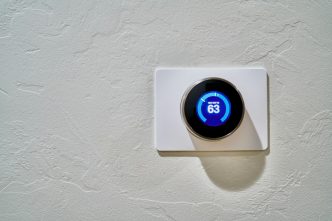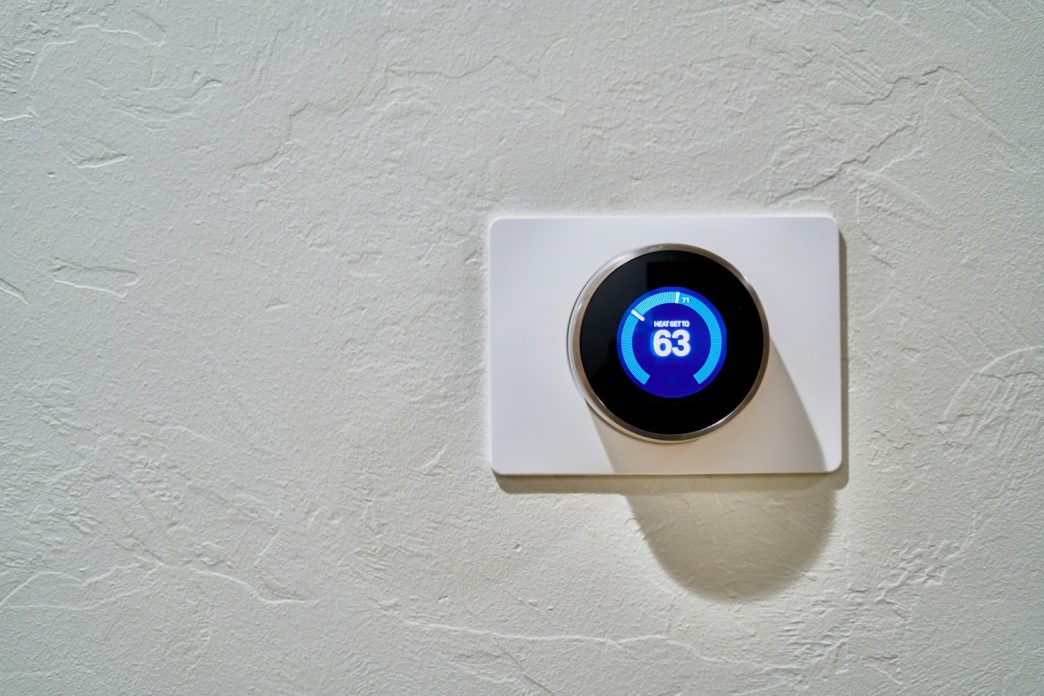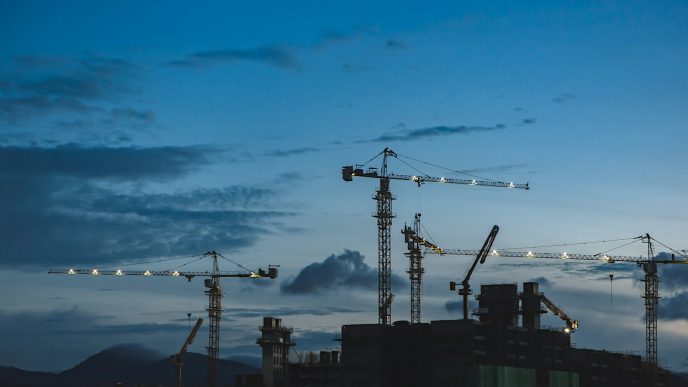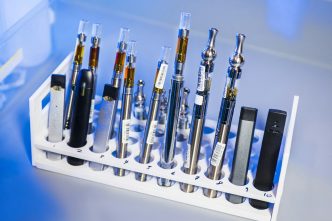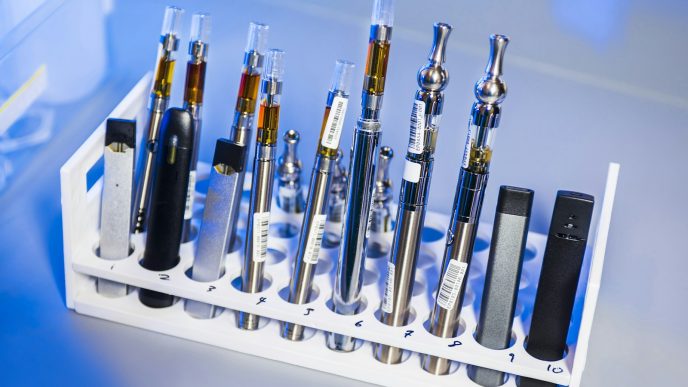Proper air conditioning maintenance is essential for ensuring the longevity and efficiency of your system. Regular upkeep not only enhances air quality but also helps in preventing system failures and reduces energy consumption. Understanding its significance allows businesses to maintain a comfortable and healthy office environment year-round.
In this article, an office cleaning company London will explore the importance of regular air conditioning maintenance for improving air quality and creating a healthier office environment. You will learn how proper upkeep can enhance employee well-being, boost productivity, and maintain system efficiency.
Also, strategies to prevent system failures and reduce energy costs will be covered, along with the best practices for timing maintenance and addressing common challenges. With a focus on practical solutions, this guide aims to help businesses keep their air conditioning systems in optimal condition for long-term success.
Improve Air Quality in the Office
Clean air conditioning systems are vital for maintaining a healthy indoor environment. Over time, air filters and vents in air conditioning units can accumulate dust, allergens, and pollutants. When these components are dirty, they trap and circulate these particles throughout the office, leading to poor air quality. This can exacerbate respiratory issues, allergies, and overall discomfort among employees.
Regular maintenance of air conditioning systems, including cleaning or replacing filters and clearing vents, is essential to reduce the presence of these airborne contaminants. By removing dust, pollen, and other pollutants from the system, you significantly improve indoor air quality. This not only helps in preventing health issues but also boosts employee productivity. Clean air contributes to a more comfortable and less distracting work environment, which can lead to increased focus and efficiency.
Prevent System Failures and Save Energy
Clogged filters and dirty components in air conditioning units can significantly affect their performance, leading to higher energy consumption and an increased risk of system failures. When filters become clogged with dust and debris, they restrict airflow, forcing the air conditioning system to work harder to circulate air. This additional strain can result in increased energy bills as the system operates less efficiently.
Moreover, dirty components such as coils and fans can hinder the system’s ability to effectively cool or heat the office space. Over time, this inefficiency not only drives up energy costs but also accelerates wear and tear on the system, potentially leading to costly breakdowns or premature replacement of the unit.
Regular cleaning and maintenance of air conditioning systems are crucial for preventing these issues. By routinely replacing or cleaning filters, and ensuring that all components are free of dust and debris, you can help the system run smoothly and efficiently. This proactive approach not only extends the lifespan of the air conditioning unit but also reduces the likelihood of unexpected repairs or replacements.
Determine the Best Time for Air Conditioning Maintenance
Timing is crucial when it comes to air conditioning maintenance. Regular maintenance ensures that the system operates efficiently and avoids unexpected issues. By scheduling maintenance at the optimal times, businesses can enhance system performance and prevent disruptions during peak usage periods.
Schedule Maintenance Before Peak Seasons
Planning air conditioning maintenance ahead of peak seasons is essential for ensuring smooth operation during periods of high demand. For many offices, summer is a critical time when air conditioning units are used most intensively. Scheduling maintenance before the onset of peak seasons can help prevent unexpected breakdowns and system failures.
Before summer arrives, businesses should arrange for a comprehensive cleaning and inspection of their air conditioning systems. This proactive approach allows technicians to address potential issues, such as clogged filters or worn-out components, before they escalate into major problems. A well-maintained system will operate more efficiently, reducing the risk of unexpected failures that could disrupt office comfort and productivity.
Additionally, preparing the air conditioning system ahead of time ensures that it is running at peak performance, which can lead to lower energy consumption and reduced utility costs. It also helps maintain a comfortable working environment, as a properly functioning system will keep temperatures consistent and air quality high.
Regularly Inspect for Dust Build-Up
Regular inspections of air conditioning units are crucial for maintaining optimal performance and air quality in the office. Over time, dust and debris can accumulate in various parts of the system, including vents and filters. If left unchecked, this build-up can obstruct airflow, reduce system efficiency, and negatively impact indoor air quality.
Encouraging frequent inspections allows businesses to identify and address dust build-up before it leads to more significant problems. During these inspections, technicians should check for visible dust accumulation and examine filters and vents for any blockages. Addressing these issues early can prevent more severe complications, such as reduced cooling efficiency or system breakdowns, which can be costly and disruptive.
Setting up a routine inspection schedule is an effective way to stay on top of maintenance needs. Regular checks—ideally every few months—help ensure that the system remains in good condition and functions efficiently. For offices with higher foot traffic or more significant dust sources, more frequent inspections might be necessary.
Focus on Key Components of the Air Conditioning System
To ensure optimal performance and longevity of air conditioning systems, it’s crucial to focus on maintaining key components. Regular attention to these critical parts helps prevent common issues and promotes efficient operation. Proper care of these elements is essential for a well-functioning and reliable system.
Clean or Replace Air Filters
Air filters are a crucial component of any air conditioning system, playing a vital role in maintaining indoor air quality and system efficiency. These filters trap dust, pollen, and other airborne particles, preventing them from circulating through the office environment. However, over time, filters can become clogged with debris, reducing their effectiveness and impeding airflow.
Regular maintenance of air filters is essential to ensure that the air conditioning system operates optimally. When filters are clogged, they force the system to work harder, which can lead to increased energy consumption and potential system strain. For this reason, it’s recommended to clean or replace filters on a regular basis, depending on the type of filter and the level of use.
Cleaning reusable filters involves removing them from the system, gently brushing off accumulated dust, and washing them if necessary. Ensure that the filter is completely dry before reinserting it into the system. For disposable filters, it’s important to replace them with new ones according to the manufacturer’s recommendations.
Clear Air Vents and Ducts
Air vents and ducts are essential components of an air conditioning system, responsible for distributing cooled air throughout the office. Over time, these areas can accumulate dust, debris, and even mold, which can significantly impact both the efficiency of the system and the overall cleanliness of the office environment.
Dust and debris in air vents and ducts can obstruct airflow, forcing the air conditioning unit to work harder to maintain the desired temperature. This not only reduces the system’s efficiency but can also increase energy consumption and wear on the unit. Furthermore, when air is forced through clogged or dirty ducts, it can re-circulate dust and allergens back into the office, affecting indoor air quality and potentially causing discomfort for employees.
Regularly clearing air vents and ducts is crucial to ensure unrestricted airflow and prevent the build-up of contaminants. This process involves removing vent covers and using specialized equipment to vacuum out dust and debris from the ducts. In some cases, professional cleaning services may be necessary to thoroughly clean deep within the ductwork.
Address Common Air Conditioning Cleaning Challenges
Maintaining an air conditioning system can present several challenges, especially in ensuring that all components are thoroughly cleaned. Some areas are more difficult to access or require specialized tools, making it crucial to understand these challenges to maintain optimal system performance and air quality.
Manage Hard-to-Reach Areas
Maintaining an air conditioning system involves cleaning various components, some of which are challenging to access. Areas such as ducts, coils, and internal components can be difficult to reach and require special attention to ensure they are cleaned thoroughly. These hard-to-reach areas often accumulate significant amounts of dust, debris, and contaminants, which can compromise the system’s efficiency and the quality of indoor air.
Professional cleaning companies are equipped with specialized tools and techniques designed for these challenging tasks. For example, flexible duct cleaning brushes and vacuum attachments can navigate tight spaces and effectively remove dust and debris from inside ducts. Similarly, coil cleaning tools can reach deep into the unit to clean condenser and evaporator coils, which are essential for the system’s heat exchange process.
Our team uses advanced equipment and follows industry best practices to address these hard-to-reach areas. This includes using high-powered vacuums with HEPA filters to capture fine particles and ensure that no contaminants are left behind. We also employ careful inspection methods to identify any hidden issues that may affect system performance.
Use Specialized Tools and Equipment
Effective air conditioning cleaning requires the use of specialized tools and equipment to ensure a thorough job without compromising the system’s performance. Key tools include hoovers with HEPA filters, compressed air, and coil cleaning brushes, each serving a unique purpose in maintaining the efficiency and cleanliness of the unit.
Vacuum Cleaners with HEPA Filters
HEPA (High-Efficiency Particulate Air) filters are crucial for capturing fine dust and allergens that traditional vacuum cleaners might miss. These vacuum cleaners are designed to trap particles as small as 0.3 microns with 99.97% efficiency, ensuring that even the smallest contaminants are removed from the air conditioning system. Using a vacuum with a HEPA filter helps prevent dust from being recirculated back into the office environment.
Compressed Air
Compressed air is used to blow out dust and debris from hard-to-reach areas, such as the internal components of the air conditioning unit. It is particularly useful for cleaning coils and other intricate parts where dust can accumulate. The force of the air helps dislodge particles that might otherwise be difficult to remove.
Coil Cleaning Brushes
These brushes are specifically designed to clean condenser and evaporator coils. They come in various sizes and shapes to access different parts of the coils effectively. Regular cleaning of the coils with these brushes helps maintain efficient heat exchange and prevents system strain.
Prioritise Health and Safety During Cleaning
Ensuring health and safety during air conditioning cleaning is crucial for both the well-being of employees and the proper functioning of the system. Proper procedures and precautions help avoid accidents and maintain a safe work environment. Here’s how to address health and safety considerations effectively.
Follow Health and Safety Guidelines
Maintaining air conditioning systems requires strict adherence to health and safety guidelines to ensure both the safety of the equipment and the well-being of employees. Air conditioning systems often involve complex components such as electrical wiring, refrigerants, and mechanical parts, each of which poses specific risks if not handled correctly.
Electrical Safety
Handling electrical components demands careful attention. Professionals should always turn off the power before beginning any cleaning or maintenance work. Ensuring that all electrical connections are secure and free of corrosion helps prevent potential hazards such as short circuits or electrical fires.
Refrigerant Management
Refrigerants are essential for the cooling process but can be hazardous if mishandled. Proper procedures must be followed when dealing with refrigerants, including avoiding leaks and ensuring that any repairs or replacements comply with environmental regulations. Professionals should use appropriate protective gear and equipment to manage refrigerants safely.
Protective Measures
Trained professionals use personal protective equipment (PPE) such as gloves, goggles, and masks to protect themselves from potential hazards. They also employ specialized tools and techniques to handle delicate parts of the system, preventing accidental damage or injury.
Compliance with Regulations
Compliance with industry regulations and standards ensures that maintenance tasks are performed safely. This includes following guidelines from bodies such as OSHA (Occupational Safety and Health Administration) and local building codes.
Minimise Disruptions to Office Activities
Cleaning and maintaining air conditioning systems in an office setting presents a unique challenge: it must be done efficiently while causing minimal disruption to daily operations. Balancing the need for a clean and well-maintained system with the requirement to maintain a smooth workflow for employees is crucial.
Scheduling Maintenance
One effective strategy is to schedule maintenance during off-hours or low-traffic periods. This might include early mornings, late evenings, or weekends when the office is less occupied. Performing tasks outside regular working hours helps avoid interfering with employee productivity and ensures that the office environment remains undisturbed.
Coordination with Office Schedules
Prior to scheduling maintenance, it’s beneficial to coordinate with office managers to identify the best times for cleaning. This might involve understanding peak hours of office activity and planning maintenance accordingly. Flexibility is key, as professional cleaning teams can adjust their schedules to accommodate the office’s specific needs.
Minimising Disruptions
During maintenance, it’s essential that the cleaning team works efficiently and quietly. Using equipment designed for minimal noise and ensuring that any potential mess is quickly contained and cleaned can help reduce the impact on office operations. Clear communication with employees about the maintenance schedule and any expected interruptions can also help manage expectations and reduce inconvenience.
Quick Turnaround
Professional cleaning teams are trained to complete tasks swiftly and effectively, ensuring that air conditioning systems are serviced with minimal downtime. By prioritizing efficiency and clear communication, businesses can maintain a comfortable office environment without compromising productivity.
Consider Long-Term Maintenance Strategies
Maintaining an efficient air conditioning system requires a proactive approach. Implementing long-term maintenance strategies ensures that the system operates optimally, reducing the likelihood of unexpected breakdowns and extending its lifespan. Regular attention and planned upkeep are essential for sustaining air quality and system performance over time.
Implement a Routine Cleaning Schedule
Establishing a routine air conditioning cleaning schedule is crucial for maintaining the efficiency and longevity of the system. Regular cleaning, whether performed monthly or quarterly, helps ensure that the air conditioning unit remains in optimal condition throughout the year. Over time, dust, dirt, and debris can accumulate in various parts of the system, affecting performance and air quality. By implementing a consistent cleaning schedule, businesses can prevent these issues from escalating into more significant problems.
A well-planned maintenance routine involves not only cleaning the air filters but also inspecting and clearing vents, ducts, and other key components. Regular checks help to identify and address potential issues before they lead to costly repairs or system failures. For best results, it is advisable to work with a professional cleaning company that can tailor a maintenance plan to the specific needs of the office. These experts can provide thorough cleaning services and offer valuable insights into any additional maintenance requirements.
Monitor Air Quality Regularly
Monitoring indoor air quality is essential for maintaining a healthy and productive office environment. Businesses should implement regular air quality checks to ensure that the air within the office remains clean and safe. This practice becomes particularly important if employees report symptoms such as allergies, respiratory issues, or general discomfort, which can often be linked to poor air quality.
Regular air quality assessments can help identify problems related to dust, allergens, and pollutants that might not be immediately visible. For instance, high levels of particulate matter or volatile organic compounds (VOCs) in the air can signal that air conditioning filters are clogged or that there are issues with the ventilation system. By monitoring air quality, businesses can promptly address these issues, whether through additional cleaning of air conditioning systems or replacing filters.
Incorporating air quality monitoring into the routine office maintenance plan ensures that problems are detected early, preventing potential health issues and maintaining a comfortable working environment. Air quality monitoring devices can provide real-time data and insights, helping to make informed decisions about when to schedule deeper cleanings or system adjustments.
Work with Professional Cleaning Services
Engaging professional cleaning services ensures that your air conditioning system receives expert care and attention. Professionals bring specialised knowledge and equipment to handle complex maintenance tasks, ensuring a thorough and effective cleaning process. Their expertise helps maintain optimal system performance and indoor air quality while reducingdisruptions to your office.
Ensure Thorough and Safe Cleaning
When it comes to maintaining your office’s air conditioning system, professional cleaning services play a crucial role. For a comprehensive and effective clean, trained experts, such as those from our office cleaning company in London, bring both specialized knowledge and the right equipment. These professionals understand the complexities of air conditioning systems, from the delicate components of the unit to the intricate ductwork. Their expertise ensures that every part of the system is cleaned thoroughly, addressing areas that might be missed by less experienced individuals.
Professional cleaners use high-quality tools and techniques designed to reach and clean all necessary parts of the air conditioning system. For instance, they employ specialized vacuum cleaners with HEPA filters to remove dust and debris without affecting the system’s performance. They also use proper cleaning solutions and equipment to handle components like coils and fans, ensuring that these sensitive parts are not damaged during the process.
Safety is a paramount concern when dealing with air conditioning systems. Professional services adhere to stringent health and safety guidelines, particularly when handling electrical components or refrigerants. This adherence helps prevent accidents and ensures that all cleaning tasks are performed without compromising the system’s integrity or the safety of your workplace.
Receive Expert Advice on System Maintenance
Expert advice is crucial for maintaining an efficient and reliable air conditioning system. Professional cleaning services provide tailored maintenance plans, including recommendations on cleaning frequency, filter types, and inspections, to optimise system performance and longevity.
Experienced professionals identify potential issues early, preventing costly breakdowns and inefficiencies. They also suggest energy-efficient upgrades and cost-effective solutions to reduce operational costs, ensuring maintenance practices meet current industry standards and technology advancements.
Conclusion
Regular maintenance of office air conditioning systems is essential for a healthy, efficient, and comfortable workplace. Well-maintained systems improve air quality, enhance performance, reduce energy costs, and prevent breakdowns. Prioritizing air conditioning care supports a productive environment and promotes employee well-being while ensuring long-term system reliability.

